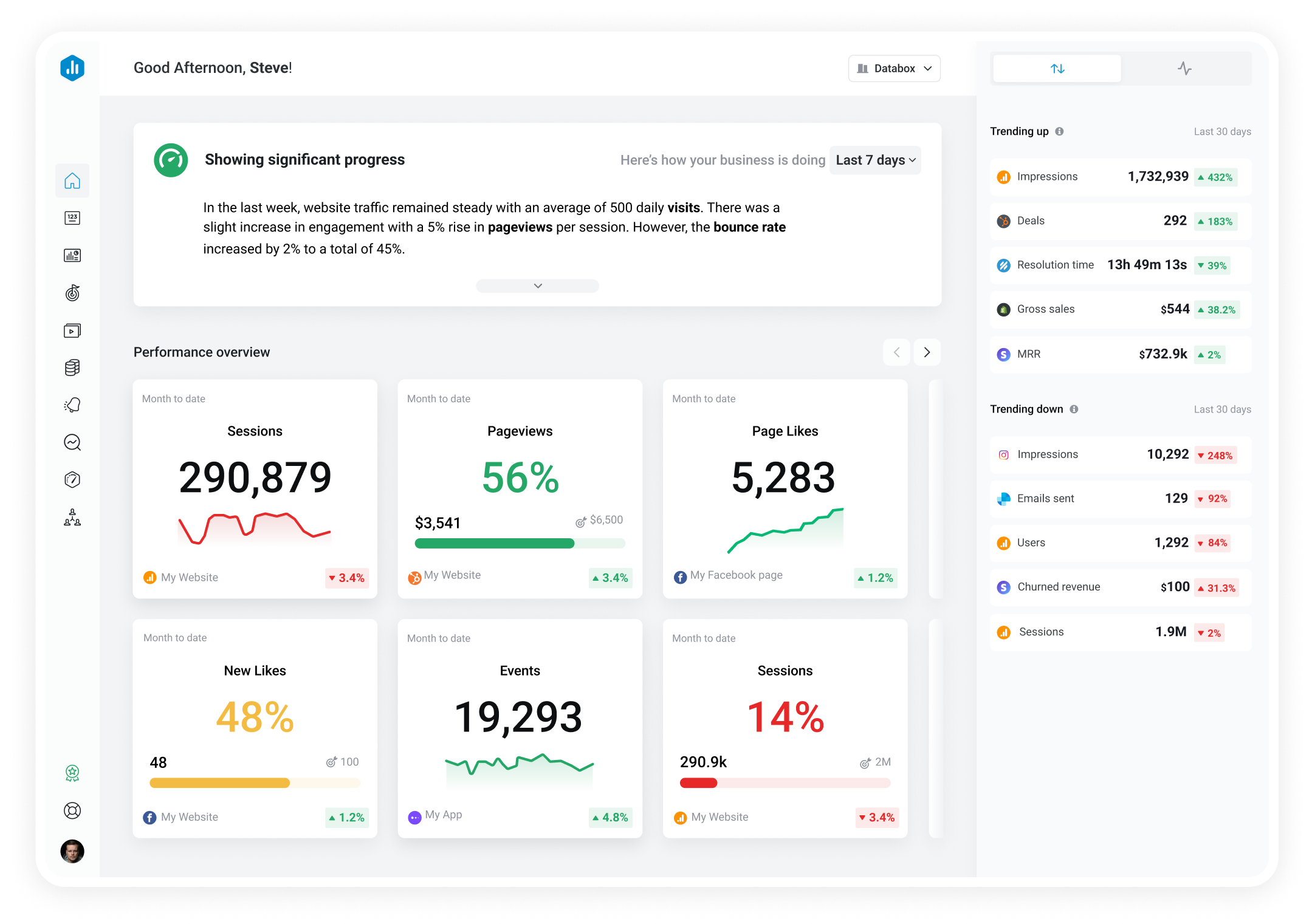Track all of your key business metrics from one screen
GET STARTED
 Shopify
Gross Sales by Product Vendor
Shopify
Gross Sales by Product Vendor Equates to product Selling Price x Ordered Quantity during specified Date Range split up by Product Vendor.
With Databox you can track all your metrics from various data sources in one place.
Databox is a business analytics software that allows you to track and visualize your most important metrics from any data source in one centralized platform.
To track Gross Sales by Product Vendor using Databox, follow these steps:
 Goals
Goals Scorecards
Scorecards Metric Digest
Metric Digest Metric Builder
Metric Builder Data Calculations
Data Calculations Performance Screen
Performance Screen‘Gross Sales’ and ‘Discounts’ standard and dimensional metrics will be off by some cents on some days if ‘taxes included’ is checked in the connected Shopify account.
The reason for this, using the Discounts metric example, is that Databox has to calculate the actual discount from the values it gets from the API by subtracting the tax from it. This is done by calculating the tax with the tax rate and the discounted amount, which often yields decimal numbers, but Shopify has its own way of rounding these numbers in the User Interface. As a consequence, when observed with Daily granularity, some days may have discrepancies by a few cents due to rounding.
Affected metrics:
Discounts
˪ by Billing City
˪ by Billing Country
Gross Sales
˪ by Billing City
˪ by Billing Country
˪ by Top Products
˪ by New vs Returning Customers
˪ by Product Vendor
